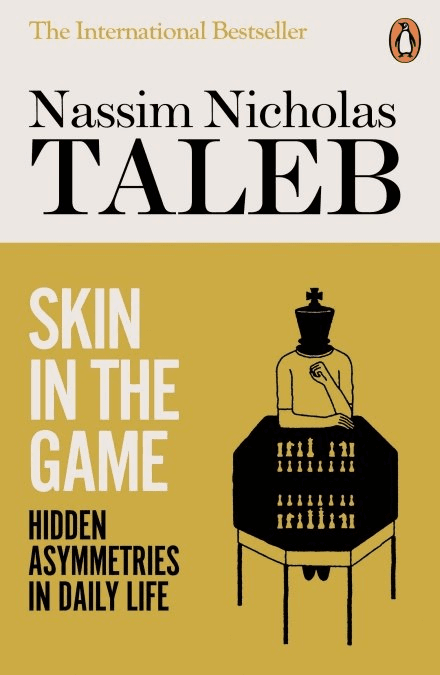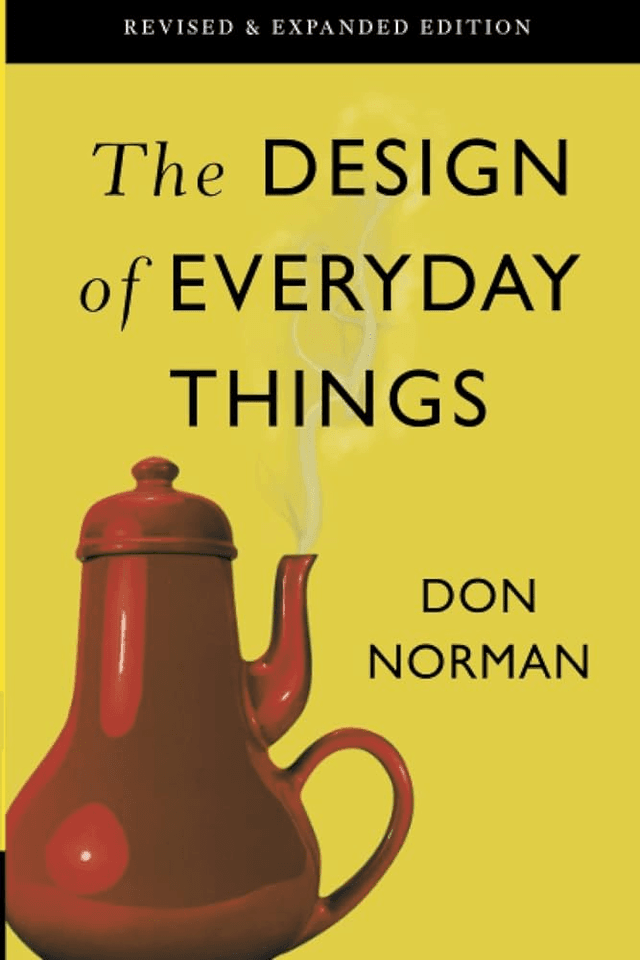Skin in the Game: Hidden Asymmetries in Daily Life vs. The Design Of Everyday Things
Skin in the Game: Hidden Asymmetries in Daily Life
Skin in the Game: Hidden Asymmetries in Daily Life is a nonfiction book by Nassim Nicholas Taleb, published in 2018. Taleb’s main point is pretty simple: people should share in the risks of the decisions they make. If you benefit from something, you should also face the downsides if things go wrong. He calls this having “skin in the game.” Without that, people can make reckless choices that hurt others while staying safe themselves. The book covers everything from politics and business to religion and everyday life. Taleb doesn’t hold back on criticism. He talks about how some policymakers and financial experts make decisions that affect millions but don’t suffer when those decisions backfire. He uses examples like bankers profiting during booms but getting bailed out during crashes. Taleb also goes after what he calls “Intellectual Yet Idiot” types—educated people who, in his view, complicate things and give advice without understanding real-world consequences. He argues that real k...
The Design Of Everyday Things
Even the smartest among us can feel inept as we fail to figure out which light switch or oven burner to turn on, or whether to push, pull, or slide a door. The fault, argues this ingenious -- even liberating -- book, lies not in ourselves, but in product design that ignores the needs of users and the principles of cognitive psychology. The problems range from ambiguous and hidden controls to arbitrary relationships between controls and functions, coupled with a lack of feedback or other assistance and unreasonable demands on memorization. The Design of Everyday Things shows that good, usable design is possible. The rules are simple: make things visible, exploit natural relationships that couple function and control, and make intelligent use of constraints. The goal: guide the user effortlessly to the right action on the right control at the right time. The Design of Everyday Things is a powerful primer on how -- and why -- some products satisfy customers while others only f...


Reviews
Reviews
| Item | Votes | Upvote |
|---|---|---|
| Insightful and provocative arguments | 1 | |
| Applies to various aspects of life | 1 | |
| Engaging and accessible writing style | 1 | |
| A sensible approach to ethics | 1 |
| Item | Votes | Upvote |
|---|---|---|
| Some arguments can be repetitive | 1 | |
| Taleb's confrontational tone may not appeal to everyone | 1 |
| Item | Votes | Upvote |
|---|---|---|
| No pros yet, would you like to add one? | ||
| Item | Votes | Upvote |
|---|---|---|
| No cons yet, would you like to add one? | ||
Frequently Asked Questions
'Skin in the Game' focuses heavily on ethics, personal risk, and accountability in decision-making, making it particularly relevant for readers interested in ethical considerations. In contrast, 'The Design of Everyday Things' emphasizes usability and cognitive psychology in product design, which is less about ethics and more about functionality and user experience. Therefore, if your primary interest is ethics, 'Skin in the Game' would be more relevant.
'Skin in the Game' provides insights into decision-making and accountability that can be applied to various aspects of life, including personal and professional contexts. On the other hand, 'The Design of Everyday Things' offers practical principles for improving product design and user interaction, which can be beneficial for designers and consumers alike. Depending on your focus—ethical decision-making versus practical design principles—each book offers valuable applications.
'Skin in the Game' is noted for its engaging and accessible writing style, making complex ideas more relatable to readers. In contrast, 'The Design of Everyday Things' is more technical and focused on design principles, which may not be as engaging for all readers. Therefore, if you prefer a more narrative and provocative style, 'Skin in the Game' may be more appealing.
'Skin in the Game' presents provocative arguments about ethics and personal risk that challenge conventional thinking, making it a thought-provoking read. In contrast, 'The Design of Everyday Things' focuses on practical design concepts and usability, which may not provoke the same level of philosophical reflection. If you seek a book that challenges your thinking on ethics, 'Skin in the Game' is likely to be more thought-provoking.
'Skin in the Game: Hidden Asymmetries in Daily Life' is a nonfiction book by Nassim Nicholas Taleb that argues people should share in the risks of their decisions. Taleb emphasizes that if someone benefits from a decision, they should also face the potential downsides. The book critiques various sectors, including politics and finance, highlighting how decision-makers often escape the consequences of their actions. It explores themes of accountability and the importance of real-world experience over theoretical knowledge.
Nassim Nicholas Taleb is a Lebanese-American essayist, scholar, and statistician known for his work on risk, uncertainty, and decision-making. He is the author of several influential books, including 'The Black Swan' and 'Antifragile.' Taleb's writing often critiques conventional wisdom and emphasizes the importance of practical experience in understanding complex systems.
Pros of 'Skin in the Game' include its insightful and provocative arguments, applicability to various aspects of life, engaging writing style, and a sensible approach to ethics. However, some cons are that certain arguments can be repetitive, and Taleb's confrontational tone may not appeal to everyone.
The main themes of 'Skin in the Game' include accountability, the importance of sharing risks in decision-making, the critique of policymakers and financial experts who evade consequences, and the influence of stubborn minorities on societal choices. Taleb also discusses the concept of real knowledge being derived from practical experience rather than theoretical understanding.
Nassim Nicholas Taleb's writing style in 'Skin in the Game' is direct and sometimes blunt. He is known for his no-nonsense approach, which some readers appreciate for its clarity and honesty, while others may find it overly combative or confrontational.
'The Design Of Everyday Things' is a book that explores the principles of good product design. It argues that many common usability issues stem from poor design that ignores the needs of users and cognitive psychology principles. The book emphasizes making controls and functions visible, using natural relationships, and applying intelligent constraints to guide users effortlessly.
The author of 'The Design Of Everyday Things' is Don Norman, a renowned cognitive scientist and usability engineer known for his contributions to the field of design.
'The Design Of Everyday Things' discusses several key principles of good design, including making things visible, exploiting natural relationships between controls and their functions, and using constraints intelligently to guide users towards the right actions.
'The Design Of Everyday Things' is considered a powerful primer on design because it provides clear, actionable guidelines for creating user-friendly products. It explains why certain designs frustrate users and offers practical solutions to make products more intuitive and satisfying to use.



















